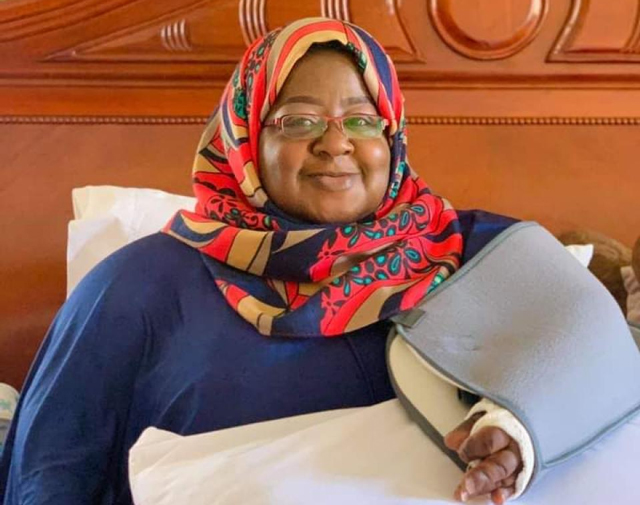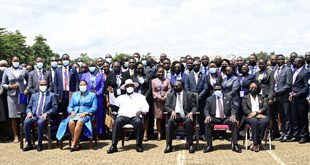
Kampala, Uganda | THE INDEPENDENT | 36-year-old Asher Namatovu suddenly gets her bones broken with every small fall, hit or even when she misses a step. She got her first fracture at the age of six and has had countless fractures ever since. The latest was her hardest hit episode when she broke her arm, yet she uses her hands to move or support her lower body.
Namatovu who suffers from brittle bones, a hereditary condition, also known as osteogenesis imperfecta, is now glued to her bed and can only move when carried to a wheelchair. She says that she has failed to find a specialist who would wholly treat her for lasting relief from the pain caused by the injuries.
Namatovu has hopped from hospital to hospital, but none of them can manage her case anymore. Twelve other members of her family suffer from the disorder that prevents the body from developing strong bones. The condition is caused by a defect in a gene that is supposed to make collagen, a protein in the body that forms and strengthens bones.
There is no cure for brittle bone disease, although it can be managed to relieve symptoms, prevent breakage of bones, and maximize movement. treatment, according to medics, may include splints and casts for broken bones, braces for weak legs, ankles, knees, and wrists, physical therapy to strengthen the body and improve movement, medicines to make bones stronger, and surgery to implant rods in the arms or legs.
But Namatovu says that many times, she has received wrong care for her condition, which only worsens her disability.
At the orthopaedic department of Mulago Specialized National Referral hospital, only one person who battles her condition has been treated with a severe brittle bone disease in the last 20 years.
Dr Norbert Tholith Orwotho, an orthopaedic surgeon at the department told URN in an interview on Tuesday that the case, the only one he has seen ever in practice was a patient who had suffered from multiple fractures and therefore needed urgent care.
The doctors only made the diagnosis by examining symptoms since Uganda has no capacity to confirm whether someone really has the brittle bone disease or not. To be able to ascertain for sure, Orwotho says they need a gene sequencing test which is unavailable in the country. He predicts there could be many people suffering from the disease unknowingly.
However, even as there are no concrete data on the prevalence of the disease in Uganda, Orwotho says it remains a rare condition globally happening to one person in every 20,000 births. Also, he says in Africa it’s common in South Africa.
Because of its uncommonness here, despite the little known disease being on the curriculum for study in medical school, Orwotho says no research in the latest care has been done at the department and that all they do is manage the broken bones when a patient shows up.
But, elsewhere advances have been made in care with recent studies showing that the condition can be cured through a bone marrow transplant. This for the likes of Namatovu is only a dream. She says even simple pain management and proper handling of their fragile bones is almost impossible, and as a result, she has turned to read widely about her condition and guiding doctors on what could work for her but still it remains a game of chances.
In absence of the latest innovations in care or even confirming the disease coupled with the fact that disease is incurable and one will experience multiple fractures in their lifetime, Orwotho says they basically offer counselling to avoid activities that may increase one’s chance of injury and managing the pain. Among the signs of the disease are bone pain, brittle teeth, a shorter stature and bone deformity.
People with this condition are encouraged to maintain a healthy weight to reduce stress to the bones, have a safe exercise routine, east foods that are rich in Vitamin D and calcium, avoid high doses of supplements, avoid alcohol, reduce caffeine intake, and avoid smoking.
********
URN
 The Independent Uganda: You get the Truth we Pay the Price
The Independent Uganda: You get the Truth we Pay the Price


